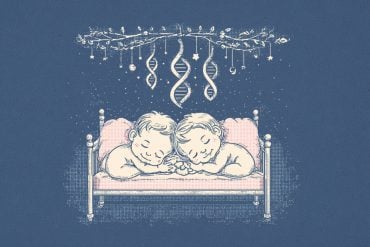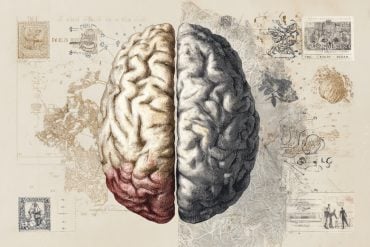Summary: Older adults with depression showed increased signs of accelerated biological aging, including poorer brain and overall health compared to their peers without depression.
Source: UConn
Older adults with depression are actually aging faster than their peers, UConn Center on Aging researchers report.
“These patients show evidence of accelerated biological aging, and poor physical and brain health,” which are the main drivers of this association, says Breno Diniz, a UConn School of Medicine geriatric psychiatrist and author of the study, which appears in Nature Mental Health on March 22.
Diniz and colleagues from several other institutions looked at 426 people with late-in-life depression.
They measured the levels of proteins associated with aging in each person’s blood. When a cell gets old, it begins to function differently, less efficiently, than a “young” cell. It often produces proteins that promote inflammation or other unhealthy conditions, and those proteins can be measured in the blood.

Diniz and the other researchers compared the levels of these proteins with measures of the participants’ physical health, medical problems, brain function, and the severity of their depression.
To their surprise, the severity of a person’s depression seemed unrelated to their level of accelerated aging. However, they did find that accelerated aging was associated with worse cardiovascular health overall.
People with higher levels of aging-associated proteins were more likely to have high blood pressure, high cholesterol, and multiple medical problems. The accelerated aging was also associated with worse performance on tests of brain health such as working memory and other cognitive skills.
“Those two findings open up opportunities for preventive strategies to reduce the disability associated with major depression in older adults, and to prevent their acceleration of biological aging,” says Diniz, who is from the UConn Center on Aging.
The researchers are now looking at whether therapies to reduce the number of aged, “senescent” cells in a person’s body can improve late in life depression. They are also looking at specific sources and patterns of proteins associated with aging, to see if this might lead to personalized treatments in the future.
About this aging and depression research news
Author: Kim Krieger
Source: UConn
Contact: Kim Krieger – UConn
Image: The image is in the public domain
Original Research: Open access.
“Major depression, physical health and molecular senescence markers abnormalities” by Johanna Seitz-Holland et al. Nature Mental Health
Abstract
Major depression, physical health and molecular senescence markers abnormalities
Previous studies suggested the role of cellular senescence in late-life depression (LLD). However, it is unclear how this finding relates to common features of LLD, such as medical and cognitive problems. We applied factor analyses to an extensive battery of clinical variables in 426 individuals with LLD.
Here we tested the relationship between these factors, age and sex, with an index of cellular senescence based on 22 senescence-associated secretory phenotype proteins. We found four factors: ‘depression and anxiety severity’, ‘cognitive functioning’, ‘cardiovascular and cardiometabolic health’ and ‘blood pressure’.
A higher senescence-associated secretory phenotype index was associated with poorer ‘cognitive functioning’ and ‘cardiovascular and cardiometabolic health’ but not with ‘depression and anxiety severity’. These findings highlight the role of cellular senescence in poorer physical and cognitive health in LLD.
They are consonant with the viewpoint that co-occurring medical burdens and their associated disabilities are part of a phenotype of accelerated ageing in LLD.







